
The Rape of Proserpina, by Gianlorenzo Bernini, c. 1618–25. Photograph by Sonse. Flickr (CC BY 2.0).
“Translating Ovid’s Sexual Violence,” a discussion with Stephanie McCarter and Jia Tolentino, moderated by Joanna Stalnaker, professor of French and the Paul Brooke Program Chair for Literature and Humanities in the Core, and organized by Joseph Howley, associate professor of classics, took place at Columbia University on April 18, 2019. The following transcript of the event has been edited and condensed.
Joanna Stalnaker: I thought I might just get the conversation started by asking you both how and when you first became preoccupied with this question of sexual violence in Ovid.
Stephanie McCarter: I first became preoccupied with it years ago when teaching this text in a course on women and gender in the ancient world. I was using the translation by Rolfe Humphries, and we were reading the story of the Sun’s rape of Leucothoe, which I have written about. As the class was discussing it, there was a lack of clarity about whether or not she had been raped. I couldn’t tell just by looking at Humphries’ translation what the Latin said. After I went back to my office and looked at the Latin, I could not believe the way this scene had been translated. It made me angry, frankly. It made me sad—sad that the translation did not give my students the tools they needed to grasp exactly what happened to Leucothoe. So every time I teach the Metamorphoses in translation, I bring in the Latin of Leucothoe’s story and all of the translations of it. My students are always floored by the fact that translators misconstrue the scene as consensual. A student a couple of semesters ago said, “You have to write about this.” And I went home that night and started my essay.
Jia Tolentino: Ovid is basically the only classical work that I kept after graduating from college and that I keep going back to, because I love the translation, I find it so beautiful. I never took a classics class at UVA, but I took a class on Ovid in art. There was something about learning the Metamorphoses in a class that was already about translation in some way, that was already looking at the text as an interpretation of a story, and then the art as an interpretation of that interpretation. There was a sort of focus on beauty that didn’t come at the expense of anything at all; the beauty was part of what made the text so thorny and mesmerizing and painful. I imagine that class is a model of how one should teach it. Our professor was extremely up front about everything.
Something about the Metamorphoses feels like the tectonic plates of morality forming, like this incredible, wild sort of premoral text—or amoral, but with these rays of morality shining through. It was just this irreducible, strange text that I loved so much. And also it’s about the only real subject—it’s about power, and it’s about how power transforms, and that is almost the only interesting thing in the world, you know?
I have my old college copy and I was rereading it last week, and I was very conscious of the sexual violence. But when I was going to school at the tail end of the Bush era, I was not very conscious of that. It took me a long time—like for many of us, I assume—to realize that things that had happened to me were wrong or that I had had many experiences that weren’t necessarily traumatizing but wrong. When I first read the Metamorphoses, I was not fully fledged in my consciousness of what sexual assault was. I think I read in that piece you wrote, there are fifty rapes in the text?
SM: Yes.
JT: That’s wild. When I was seventeen and reading it, that’s where the highlighting was, that’s where the underlining was—these images of these startling transformations and deceptions, but I didn’t understand them the way I do now. After the Kavanaugh hearings I had this feeling—and I wrote about it in my essay on Ovid—last year, and right then especially, I was like, I’m so exhausted, I’m so exhausted. It feels like when you’re trying to write about something, even: you’re trying to stand and fight it, or you try to run to get ahead of it. But I was like, All I want to do is like stand still and turn into something that will never have to move again. All of a sudden I had this additional layer of thinking about this. I went back to the text and realized how it was a completely different reading than when I was seventeen.
Arethusa, who turns into a lake, is an interesting case because she narrates her fear. The encounter is unusually stretched out. She compares herself to a rabbit hiding in a berry bush looking at the muzzle of a hound—it’s so immediate. And sweat pours over her, she becomes a pool, and then whoever’s chasing her becomes a river to join her. In my copy from college I wrote, “Wow, that’s so beautiful.” It’s in this post-Kavanaugh reading where I was realizing how many levels there are, how many times I will reread this text, and how many ways I will be reinterpreting it in my own mind. The issue of translating Ovid mirrors the exact same thing that this whole society has been trying to do for the last two years, which is look at a story and realize that it is a story and not an absolute truth and that the way we have understood it is a construction.
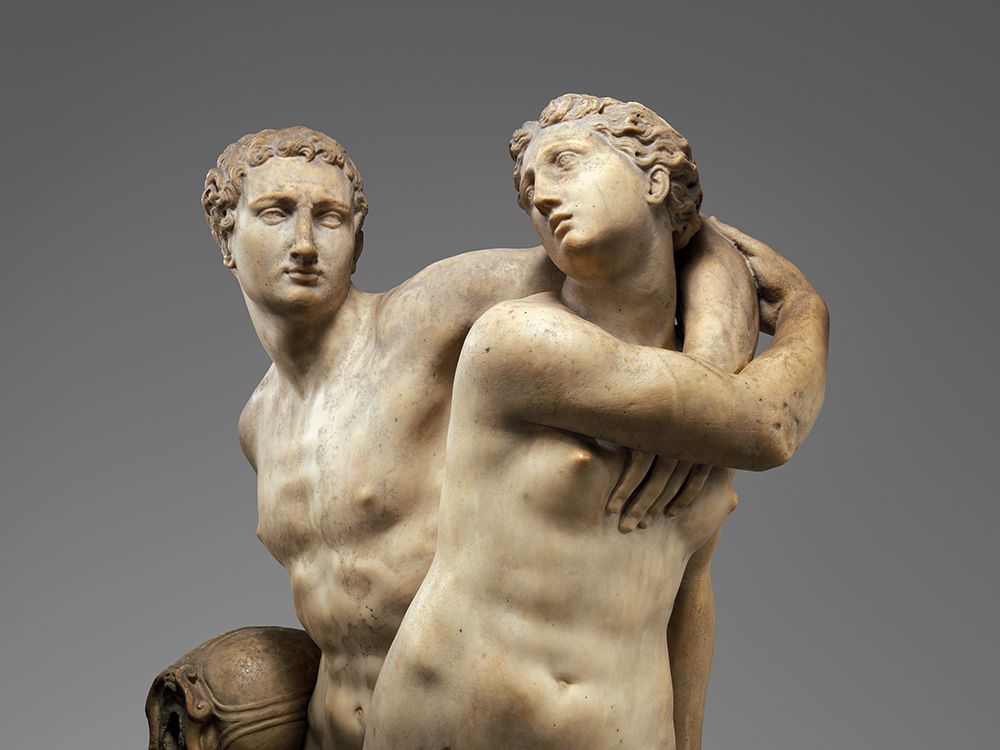
SM: One thing that is particularly true of Ovid is that he changes as we change. Even since I started reading Ovid as an undergraduate, and then reading Ovid as a graduate student, the way the text is taught has changed so much. I was an undergraduate and reading Ovid with friends and professors, and we didn’t really talk much about the sexual violence. In fact it only hit me how much this is a text that involves story after story after story of sexual violence when I went to Rome as an undergraduate and saw Bernini—
JT: Right, you see the handprints, the fingerprints; you see the tightness of the grip. I think that was it for me, too.
SM: Yes! And I could see Daphne’s face and terror and Persephone and her terror, and I was really struck by that look of terror. I was also surprised that in other depictions, the victims don’t look as afraid. I think that was also when I realized that one person may not see in these stories exactly what another person sees. And as we move through time, our interpretations can change as we apply who we are now to how we reread the stories. The confirmation of Kavanaugh is a perfect example—it resonates with this text, and this illuminates the now and the then as well. It illuminates both moments.
JT: I thought that I loved the Metamorphoses for the language. There are phrases that have stuck around in my head since the first reading, and all of them kind of uncomfortably but very obviously to me now have to do with sexual violence. There’s a phrase in the Humphries translation about desire and violence, “The more he wolves, the more he wants,” and I think about that a lot. And there’s the story of Callisto. Is that the one where Jupiter pretends to be a woman?
SM: He pretends to be the goddess Diana.
JT: He kisses her, and then she turns into a bear. In the Humphries translation, she “held up her hands (I mean her paws).” And the awful humor, the nauseating punch of that parentheses, has always stuck with me. And there are so many. Who is it that gets her tongue cut out?
SM: Philomela.
JT: The Metamorphoses is a fascinating text for sex and power all over the spectrum. Is it Semele who asks Jove to come to her as a god and then her body is just destroyed? That is sexual violence of a different kind; it’s like her own desire destroying her. These moments are so rich in so many ways.
SM: One thing that Ovid illuminates well is how trauma multiplies. Very rarely do his stories stop at the moment of sexual violence. He continues to examine the implications. The Callisto story is a good example of that—trauma upon trauma. She’s devoted to the goddess Diana. She thinks she’s having an encounter with the goddess she trusts and admires. It turns out to be Jupiter. He violently rapes her, and then she suffers more fallout from Juno. She’s transformed without her consent into a bear, and then a constellation. It’s one thing after another.
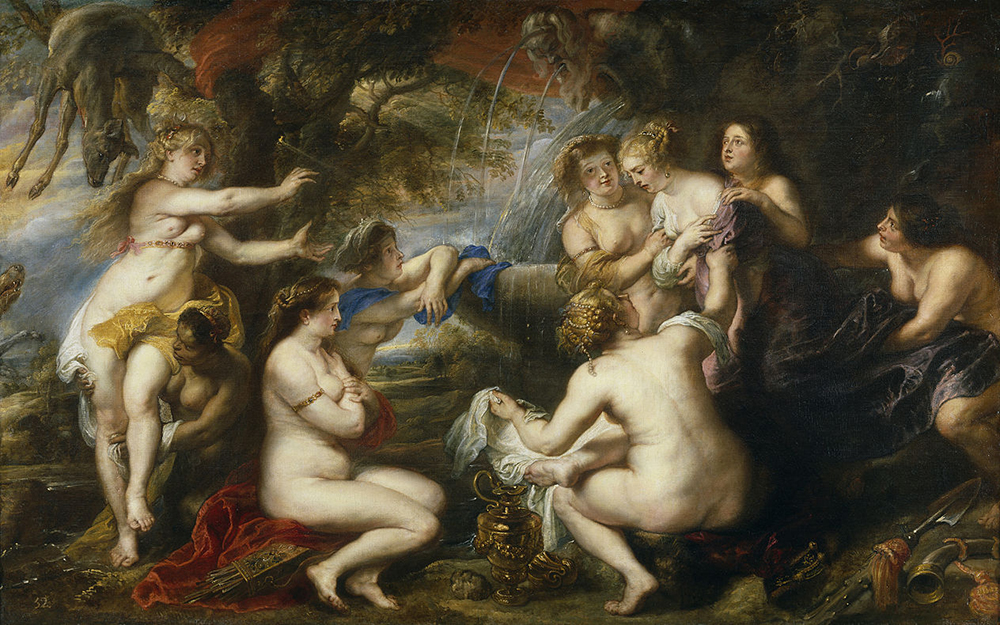
JT: Then you have Arachne, who does the role of the me-too journalist. [Laughter] I mean, she’s weaving it into the tapestry, and then she gets turned into a spider for weaving it. It’s this multiplication.
Let’s talk about Leucothoe. You wrote about that so beautifully; let’s get into the specifics, word by word. That’s another story that stuck with me and flared back to life again when all the Weinstein stuff happened. The sun god comes in while everyone’s weaving; she’s with her friends.
SM: She’s spinning with her slaves, in fact—
JT: Oh fuck. God. [Laughs]
SM: This is something that Emily Wilson has spoken to very eloquently with the Odyssey, that translators tend to give certain individuals more agency, more autonomy, and more freedom than they would have had by translating words that denote enslaved people as handmaids and maidens.
JT: I thought they were her friends.
SM: So Leucothoe is there among her female slaves spinning. The Sun is disguised as her mother and says, “Everybody leave.”
JT: The thing that really got to me was that in this translation, he kisses her like a mother would. And then he says, “We have a little private business: Go away, girls!” And that is a really contemporary scene, very contemporary; this is extremely recognizable.
SM: It is terrifying. I think that is the moment of terror: the recognition that she is alone and knows something terrible is going to happen.
JT: Let’s talk about the exact wording.
SM: There are two things that have led translators to re-create this into a scene of consent. The first is that the Sun is described as having nitor, which in Latin can mean “brightness,” its basic meaning, but also “beauty.” Ovid says that she is conquered, victa, by his nitor. The word conquered recurs across the epic to designate people—women and men—who are victims of sexual assault. That should alert you that this is a moment of rape. But a lot of people think that when “she’s conquered by his brightness” it means she’s overwhelmed by his beauty. And then the Latin also says she “puts aside her complaining.” To many this silence indicates that she consents. I think that the starting point and the end point of these interpretations are backward. Instead of starting with nitor as beauty and then interpreting the silence as consent, you start with the fact that she’s silent. Silence does not equal consent, so you have to explain nitor differently. She’s overwhelmed not by his beauty but by the intensity of his appearance—he’s turned back into the sun. This is when she knows he is a god and there’s not anything she can do. Her silence connects this moment to all the other times in the epic where rape victims are silenced, such as Philomela. To me, this adds up better than “He’s so handsome she can’t resist.”
JT: So the word for beauty and brightness is the same. But for him, because he’s the sun, it is an expression of power.
SM: Yes, exactly.
JT: Really, there’s sort of this meta argument hanging over the whole thing about what beauty can distract us from and what ends we put it to. It works in so many different ways in the story. With these women, their own beauty is used as the pretext and the justification for all of this rape, as it often is in the real world. And then you have this second layer for the sun, his beauty, his brightness, is also a function of power in a different way. One of the things I always found so painful and so oddly true about all these transformations is that they all get turned into beautiful things. Leucothoe gets turned into frankincense, right?
SM: Yes.
JT: They’re forced in death to be the thing that attracted the violence. I always found that really true to life. It makes preverbal sense to me. Beauty both conceals the cruelty of it and also makes it so much more visible.
SM: And then through metamorphosis the beauty that makes these victims vulnerable becomes crystallized in an even more vulnerable form. A beautiful object can no longer oppose mistreatment. An object can’t run. An object is always going to be vulnerable.
JS: Can I just jump in and say one more thing about that episode? I have the David Raeburn translation here: “Shocked as she was by this sudden appearance, the girl was utterly dazzled,” and then, “Protest was vain and the Sun was allowed to possess her.” Whereas you showed that it’s force.
JT: “The Sun was allowed to possess her” is such a weird, passive—
JS: Very weird, right? What’s pernicious about this is that a few lines later, her father is mad and wants to bury her alive for this crime. And she says, “He took me against my will!” And so if you don’t know that force was used, you think she’s lying. As a reader, you might think she’s lying to her father.
SM: Scholars, too, have interpreted it in this way, despite the word vis, “force.” I’m thinking of one scholarly article by Micaela Janan where she says that Leucothoe in hindsight “retrospectively constructs the act as rape” when she’s confronted by her father.
JT: As if that would make it not rape the first time.
SM: Exactly! The words Ovid uses are almost a formula for rape—vim passa est. Passa est means “to endure”; we get the word passion from it, but it also suggests being passive. And it is sometimes technical for being sexually penetrated. Vim is from vis, “force,” which is legally a word for rape. It didn’t exclusively mean rape. But if you were going to be tried for rape in the Roman world, you were likely going to be charged with vis. This formula gets repeated again and again. I was just looking at the short episode of Dryope, another woman raped by Apollo who turns into a tree, with lots of echoes of Daphne. It says she was not a virgin since she’d endured the god’s force, vim dei passam. That scene gets translated as consensual as well. Some completely ignore the phrase vim passam. In Stanley Lombardo’s translation, she simply “lost her virginity to Apollo,” and in Horace Gregory’s she “gave her virginity” to him.
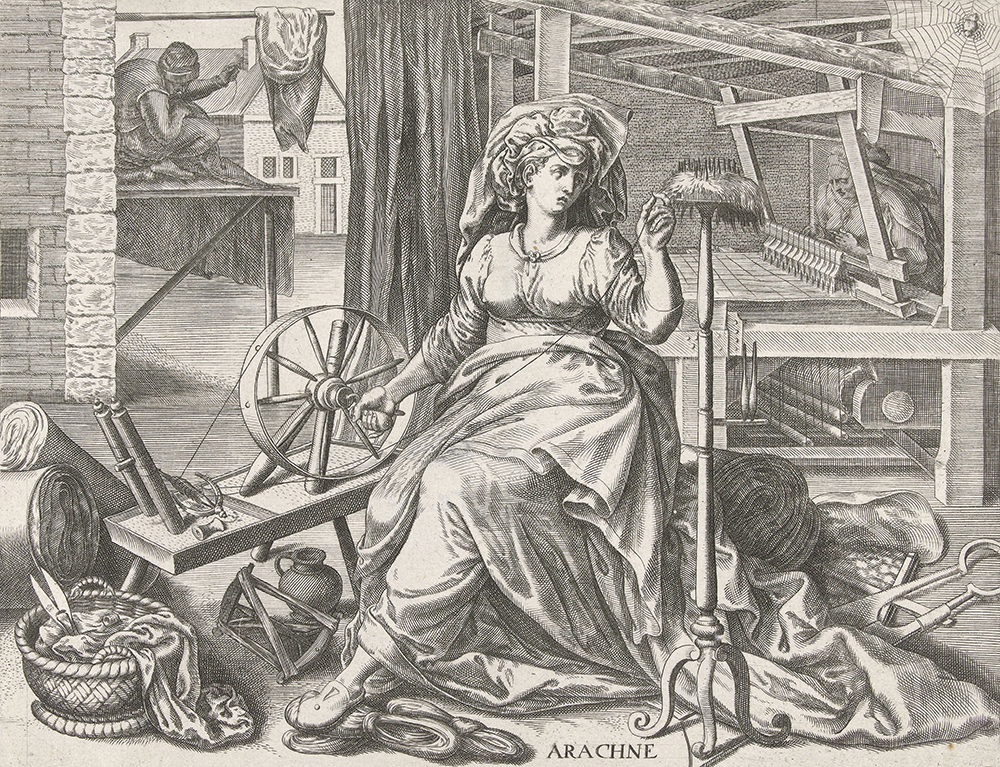
JT: Basically anyone that is asked to figure out any sexual encounter is asked to do the work of a translator. You’re given an event timeline, and it’s an incredibly tricky thing. Not to go full Dworkin, but another thing that I find really—pleasurable is definitely not the right word—consistently alive about the Metamorphoses is that it illuminates sex as violence. All of the different gradations and motivations and reactions that have been blunted by translators, I’m excited to read. I’m very eager to know what I have missed about this text.
SM: You’re so right that in Ovid sex is usually a violent act. Or when there are consensual relationships—I’m thinking of Baucis and Philemon, for example, who are a married couple—it doesn’t involve sex. When you have Leucothoe “allowing the Sun to possess her,” aside from questions of whether or not she’s raped, it blurs the power hierarchy that is very clear in the text.
Joseph Howley: One of the things that you learn as a Latinist when you start to study words about sex is just how much hierarchy is encoded in Latin sexual vocabulary—a hierarchy that’s really built around penetration, that encodes gendered roles, regardless of the actual gender of the participants. I think one of the challenges we face sometimes as classicists—you were talking about the slaves who get translated out of editions—is when we understand something to be so culturally specific and innate to the Roman perspective, I think sometimes our inclination can be to say, “Well, that’s just how it was. That’s just normal,” and then feel that it would be actually inappropriate to emphasize it somehow in our representation. I’m thinking here about why there is so much rape in this text, and how we might think that compares to the prevalence of that kind of rape in Ovid’s Rome.
JT: And this is an issue that we see now. I remember after Bowie died, for instance, there was a wave of tweets going around, “Shouldn’t we eulogize him as a rapist because it’s very well-known he had sex with fifteen-year-olds?” And I wrote about it, because in his case specifically there are women who had sex with him when they were young teenagers, and they continue to say that it was amazing and completely consensual. It’s the most deeply uncomfortable thing to have to look at that like a version of it was normal and accept that it really was. But to me that’s such an interesting thing to write straight, to look directly at. We don’t have to be afraid of the fact that it was normal, and in fact it highlights how much has changed between then and now. We don’t need that to change for us to look at it completely differently.
SM: I do think some types of rape were very normalized in Rome. But I also think that Ovid writes a lot of his rapes to be as shocking as possible. A lot of the rapes involve a young woman who is a virgin, who could one day be the mother of legitimate children. Romans didn’t define rape in exactly the same ways that we do. We would certainly consider it rape if a person enslaves a woman and rapes her, but the Romans would not necessarily have. Ovid writes these stories to be recognizable as rape to his Roman audience—this is vis, and vis was a crime. When you think of other examples of Roman rape myths, such as the rape of the Sabine women, they are also supposed to be shocking. The rape of Lucretia is shocking to Roman sensibilities because she is a noblewoman. What may be shocking to us may not be exactly the same thing that’s shocking to the Romans or for the same reasons. But these rapes are not supposed be seen as normal, everyday occurrences. Anybody who takes the element of shock out of the text is removing a lot of what Ovid intended.
JS: That’s very helpful in trying to think about how to teach this, because one of the ways that I teach the Metamorphoses is through the lens of the pumped-up violence, both battlefield violence and sexual violence. You then reread sexual violence and battlefield violence in the Iliad completely differently. You sort of look back and think to yourself, Why was I just accepting that violence or not noticing it as much? And so I’m wondering: When you say that Ovid intended it to be shocking even for his audience, is he also shedding light on things that didn’t appear as evident in some of the other classical texts or weren’t made as problematic?

SM: Ovid wants to shock you for a number of reasons. We’ve talked a lot about the beauty of the epic; the beauty of Latin poetry was never meant to stand as an end in itself. The Latin poet Lucretius has this wonderful metaphor—it’s a very famous metaphor—that his poetry is a beautiful sweetener for bitter medicine. I think that Ovid uses the beautiful poetry to draw you into thinking, as you’ve said, Jia, about power and how it operates.
JT: Another one of the stories that stuck in my head is Persephone picking flowers. I remember this when I was reading it for the first time. In the Humphries translation, it says, “In one moment, or almost one,” she’s raped. The cadence of “or almost one” has haunted me forever. But then it says, “The loosened flowers fell, and she, poor darling, / In simple innocence, grieved as much for them / As for her other loss.” The image is so startlingly beautiful in a way that enraged me, in a way that I think it was supposed to. A passage like that, someone saying this woman was more upset about the flowers she dropped than about the fact that she was just raped—that for me crystallized pretty early the fact that someone was telling the story, and it wasn’t Persephone. It was very clearly one of the few moments where I got very distant, enough to see that the text itself was an interpretation and presented in a very specific way.
SM: The moment when she’s upset about the flowers she’s dropped, she’s obviously upset about being deflowered, right? But I also know that those experiencing trauma often find other things to focus on.
JT: Absolutely.
SM: So the notion that she’s focusing on the flowers indicates how she’s coping in the moment.
JT: This is what I wrote about in my piece about watching the Kavanaugh hearings and watching Dr. Christine Blasey Ford speak. I think a lot of people in this world have turned into a tree and then turned back again. This incredibly personal thing that you long for and sometimes access through trauma is the subject that is just threaded throughout. I don’t think I understood that incredibly intimate, personal thing without these metaphors.
SM: I’ve often wondered how Ovid understood the workings of trauma so well. I think Ovid knew a lot about power and how it manifests in many different ways—violence over artists, violence over women. A lot of people in the wake of Kavanaugh felt powerless, and going back to Ovid in that moment helped me think about the ways the powerless try to take back some control. And sometimes that control is transformation.
JT: And a loss in some ways. I wanted to ask you, now that you’re translating Metamorphoses, have you received any pushback from people who say, “You’re going to twist it into feminism”?
SM: [Laughs] I think I probably will be accused pejoratively of doing a feminist translation. I gave a talk about this in my town, Sewanee. One of my students was there, and he asked me exactly this question. My response is, in terms of translating the sexual violence, I actually think I’m translating the text more accurately.
I’ve thought carefully from the very beginning about how I will translate the word vis, for example, which doesn’t exactly correspond to “rape” but is the Latin word for rape. And how I will translate the word rapio, which is where our word for rape comes from but didn’t exactly mean what we mean by rape. Rapio means to seize. But when Ovid uses it, it often connotes rape. For example, Tereus, just before he’s about to attack Philomela, is called a raptor—he’s compared to a bird of prey. There is one line in Jupiter’s rape of Io that I struggled with for weeks. It says rapuit pudorem, literally, “He stole her pudor.” Pudor means sexual modesty. And I finally translated it as “He raped the virgin.” This makes the clearest sense to me. But this gets translated in strange ways. Lombardo keeps it very literal with “He stole her chastity.” But this loses the suggestion of rape in rapio. One translator, Horace Gregory, translates this as “He overcame her scruples.” [Laughter]
JT: But you don’t steal someone’s V-card. You take it.
SM: Even if I did translate that in the most literal way, “He stole her chastity,” I suddenly feel like I am a Victorian, and it doesn’t quite get across what he did. Then there are moments when I’m trying to be really literal, especially with the word vis, force. I want this to be consistent so people can make connections between all the scenes where force is used. One of the most rewarding parts of reading the epic—because Ovid weaves these words through really intentionally—is making those connections.
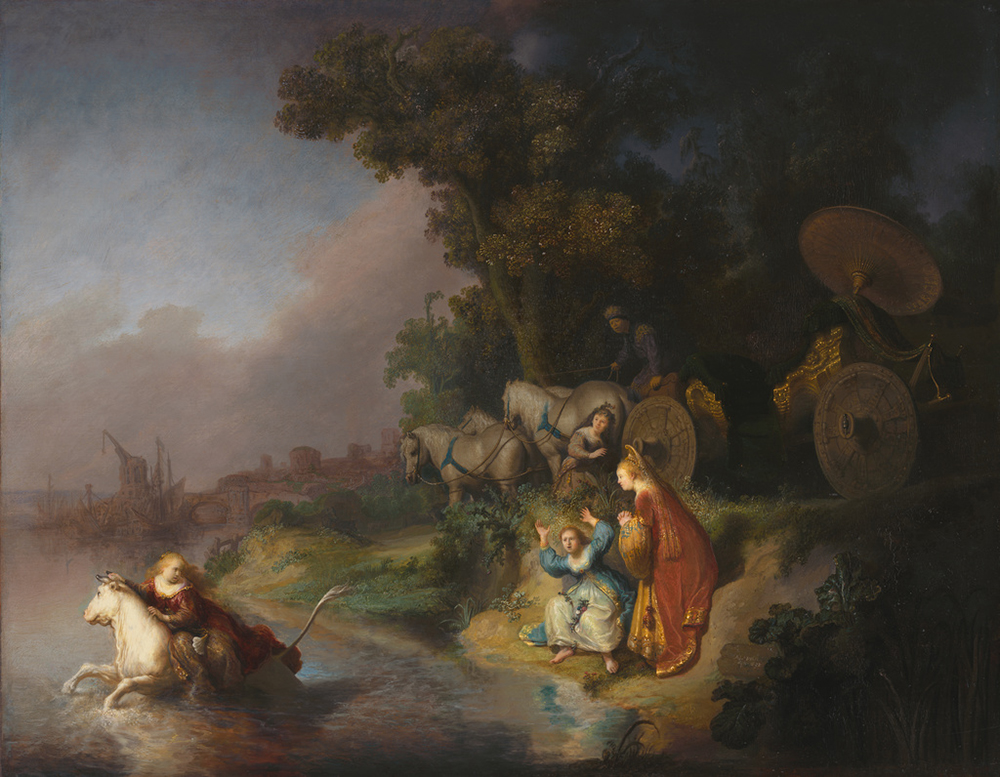
JT: One of the things that I think is interesting about what you will do and what Emily Wilson has done is that over the past couple of years you’re finally getting—at least in broader mainstream journalism—the feminist perspective more widely recognized as the fair one. You have a lot of feminist reporters, men and women, who are operating from that principle. It has been very gratifying that the default presentation of a lot of these stories has been a feminist one, which is to say an egalitarian one. It’s kind of a relief that we can just claim, No, I’m going to do as precise a job as I possibly can. And that’s it.
SM: There is a classicist named Arum Park who just gave a paper at a conference at the College of Charleston showing how diverse perspectives can correct long-held misunderstandings about these texts, and this is true of Ovid. Certain ways of translating Ovid have been inherited. Another work, the Ars Amatoria, is notorious in this regard. At one stage Ovid ponders if his student of pickup artistry should sexually assault, violare, the slave girl, ancilla, of his mistress. The commentary my class is currently using says that violare (“to use vis against”) here means to seduce. My student asked, “Why does it mean ‘seduce’ here?” And I said, “Well, let’s look at the Oxford Latin Dictionary”—and it really means “to rape.” We looked at every translation, and they all say, “Seduce the maid.” This has become the “official” translation. People who come to these texts with feminist eyes are willing to challenge that authority in ways that other translators maybe aren’t.
JT: One of the things that this book illuminates sort of slantways for me is that there are ways we can use power over each other and influence each other. One of the things that I want to come very clean, brightly out of this moment is the ways that power dynamics, interpersonal power dynamics, the confusing ones, can still be incredibly generative. There’s so much about the power we hold and exert over each other that can also be good and that can also be so fruitful. There’s something about clarifying it in reported stories that clears the space for the good ways we use power over each other to show through a little more, I think.
SM: I think reading Ovid actually can be empowering. I come out of Ovid understanding the nature of power a lot more. I come out of Ovid understanding how one can challenge power and understanding the risks of doing so. I don’t think that power has changed all that much from then to now. I have no idea if Ovid meant to empower us. But he can, and I try to teach him in that way.
[Question from the audience about whiteness and gender fluidity in Ovid]
SM: I have been bothered by the way whiteness gets introduced into the text. Take Raeburn’s translation, for example. I’m not trying to take a swipe at him, but he can’t seem to leave a noun unmodified. But Ovid is very careful with his modifiers. For instance, with Daphne, there are not a lot of adjectives used to describe her body. Whereas in Raeburn, adjectives get introduced. Some of those adjectives are words like delicate, teasing, slender, or white. Look at the pull quote on the back of the Raeburn translation—could you just read exactly what that says?
JS: “Her soft white bosom was ringed in a layer of bark, her hair was turned into foliage, her arms into branches.”
SM: So “her soft white bosom”—the word white is not there. That is an addition. A word Ovid sometimes uses is candida, which often gets translated as “white.” Io, for example, gets turned into a candida heifer—I’ve actually translated that word as “glossy” there, because I think it suggests a gleaming sheen. I think you have to be very careful with such words not to impose modern racial categories onto the text.
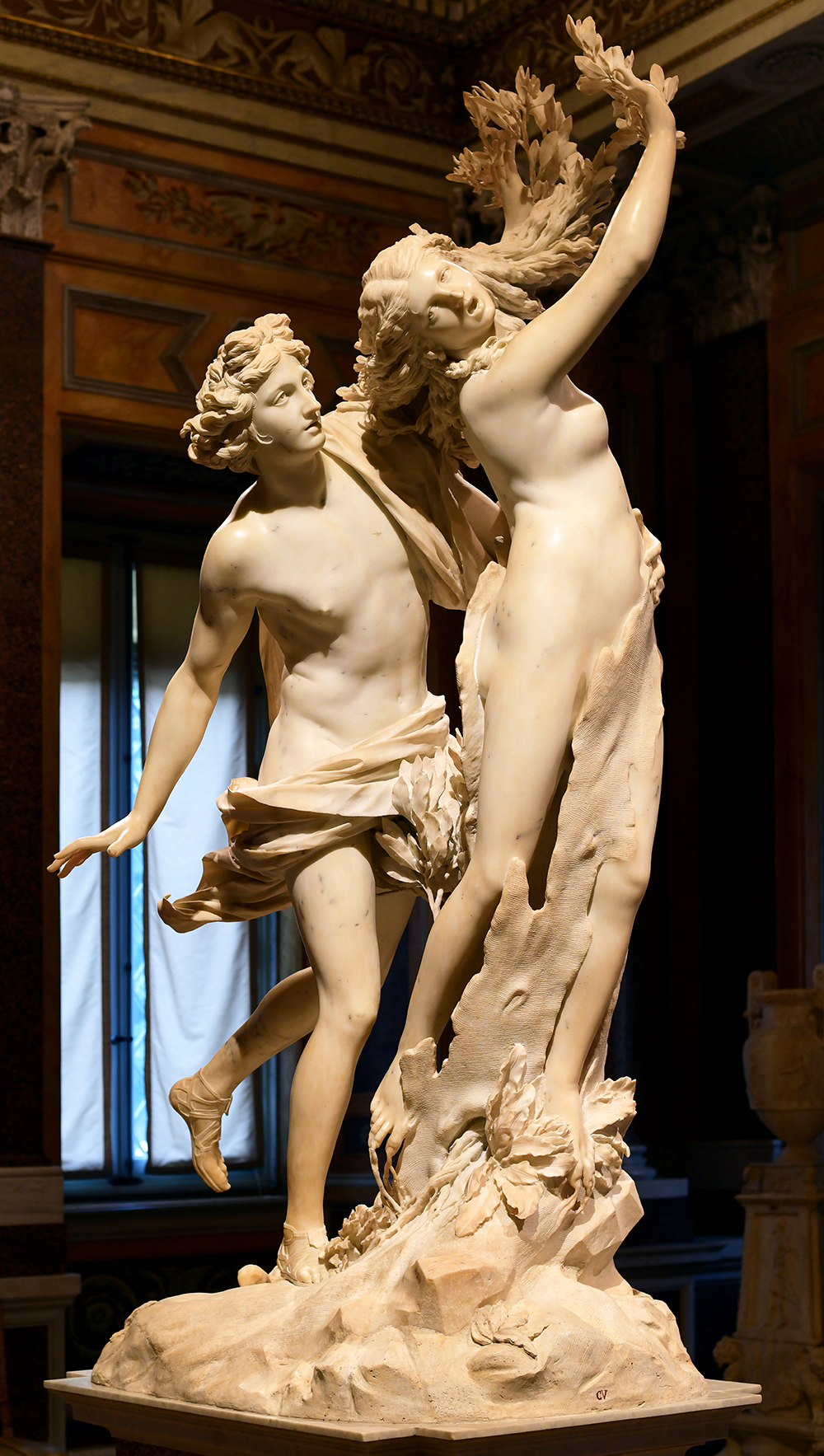
[Question from the audience about whether a more accurate, more feminist translation of Ovid might also be more triggering.]
SM: I can see the potential for that. I would not recommend that anybody read any version of Ovid’s Metamorphoses without being told beforehand exactly what this text contains—this is to enable students to determine if this is a poem they want to read. But I also think students will see something is amiss if it’s not translated accurately. With Leucothoe, my students knew something just wasn’t right. We owe it to the students to let them grapple with these issues, and to do that they have to have an accurate translation.
JT: When you look at sexual violence in general, so often what people want is just the recognition, the plain recognition that what happened to them happened. Obviously I wouldn’t say that is going to be the reaction for everyone. I’m just thinking about all the people that I’ve talked to about this in many different situations for work. There is something that can be so nauseating about seeing a concealment or euphemism, about hearing a story that’s the equivalent of “They’re ravished.”
SM: I think that’s a perfect point. People who have suffered sexual trauma want that validation, to know that everybody can at least agree that this happened. And I think we owe that to the women of the Metamorphoses as well.
[Question from the audience about the importance of continuing to teach the Metamorphoses]
JH: Like—why not just stop watching Woody Allen movies?
JT: Can’t cancel Ovid! We’ve been having this conversation about Michael Jackson recently. A reaction I have to the idea that it’s too much trouble, it’s too much thorniness, it’s too much internal conflict, it’s too much hurt for too many people to witness these things to take in these works: I refuse to let the violence, including the sexual violence, or any of the cruelties embedded in any of these works take away what they have shown me. To remove it, you would lose so much. Selfishly you would lose so much—and I mean it very selfishly. The cruelty embedded in learning your way around it is, and what you gain from mastering it or bending it to your interests, is to me personally the point.
SM: The difference between Ovid and Woody Allen or Michael Jackson is that we don’t have the recoverable Ovid at all. He is a slippery persona. To go back to the story of Arachne: two tapestries are woven, and one gives the perspective of those in power, how they mete out punishment. This is the tapestry of Minerva. The other one, Arachne’s, depicts women being raped—the perspective of the disempowered. I don’t know if Ovid himself is on the side of the abusers or the abused, if he aligns with Minerva or with Arachne. Every time I start reading the text one way, I can shift it and think of it another way. I can’t pin Ovid down. This is one reason why the poem is so worthwhile to read—different messages are going to be refracted through it depending on how you turn it toward the light.
JH: In classics, I think many of us come to the study of Latin literature, Latin language, because we love something about studying language. Or maybe we read a text and love it, and that sort of leads us into the study. But something that is really important to me as a classicist is my conviction that we do not have to like any of these people, and we do not even have to find these texts to have inherent virtue or aesthetic value. We don’t have to be driven by love or appreciation or admiration; we can be driven, for example, by curiosity. I’m teaching a Latin class this semester on the Latin satirist Juvenal, who hates everyone. He especially hates foreigners and former slaves who now have jobs and money and power. His poems’ politics are thoroughly despicable to me. Something I try to explain to my students is that we are not reading this simply because it’s good poetry. In fact, it doesn’t even have to be good poetry. That is not the only mode we have to bring to this.
SM: That’s a debate so many are having about classics at the moment: do you study classics because you learn about the heroic virtues of wonderful people who lived before we did and whom we need to emulate? I would never recommend you study classics for that reason. The last thing I want to do is put Ovid on a pedestal and say the Metamorphoses is the greatest poem by the best poet who ever lived. What I would say is that it’s a poem that’s worth reading because it presents us with important problems to grapple with.
JS: We are really looking forward to your translation, Stephanie, and to your essays, Jia. Thank you so much, both of you.